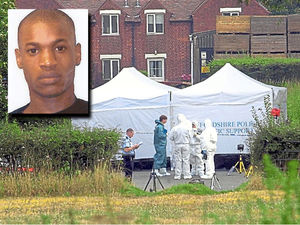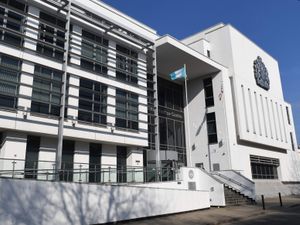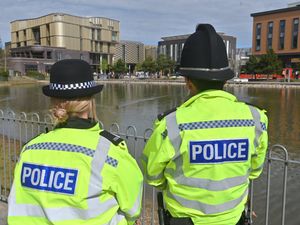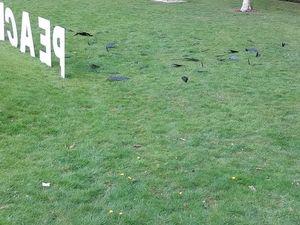Evidence in Kevin Nunes case to be reviewed 16 years after gangland execution
Five men were sentenced for the murder, but had their convictions quashed in 2012 after it was revealed how Staffordshire Police botched its investigation.

The botched murder case into the gangland killing of Kevin Nunes is to be reviewed.
Eight years after the promising footballer was killed on a country lane in Pattingham and four years after five men jailed for the murder had their convictions quashed, Staffordshire Police has announced a second police force will be reviewing the case.
Chief Constable Gareth Morgan has confirmed his intention to review the murder enquiry after meeting and apologising to the family of Mr Nunes.
The second police force, which is yet to be named, is to re-examine all the evidence in the Nunes murder case to see if there is justification for the launch of a second investigation.
The second force, which will report its findings back before the summer, will NOT be looking at the handling of the initial botched investigation by Staffordshire Police.
The Kevin Nunes murder scandal explained:
Mr Morgan said: “After the publication of the IPCC’s report in October 2017 and my acknowledgement of the failings evident in the original investigation into the murder of Kevin Nunes, I personally met Kevin Nunes’ family to apologise and to explain that I would explore opportunities to review the case.
“At this time a review has been agreed and we are now finalising arrangements with another force for this to commence in the near future.
“I am very clear that justice has not been received for Kevin Nunes’ murder and this review is an important development that will determine whether there are grounds for re-investigation.”
More from the Kevin Nunes case:
Twenty-year-old Kevin Nunes was found dead in Pattingham in 2002 having suffered five gunshot wounds.
Police said he had been taken out by rival Black Country drug mobs, the Heath Town Gang and the West Bromwich-based Raiders.
In 2008, five Black Country gangsters – Adam Joof of Willenhall, Levi Walker of Birmingham, Antonio Christie of Great Bridge, and Owen Crooks and Michael Osbourne both of Wolverhampton – were given life sentences after being found guilty of the murder at Leicester Crown Court.
But four years later the five men had their convictions quashed in the Court of Appeal.
Review
The court revealed serious police failings and concerns over the case had not been disclosed at the original murder trial.
A damning internal police management review, which looked into wrongdoing by detectives and the handling of the case's star witness, was never revealed to the judge, jury or barristers.
Had it been it would have cast serious doubt on the integrity of the police's case.
It exposed that detectives drunk alcohol with the star witness, covered-up alleged crimes committed by the witness, and that they allegedly abused overtime to boost their pay.
One of the witness handlers was having an ‘intimate affair’ with the female officer in charge of overseeing evidence at the witness's 'safe house'.
But overall the dossier revealed the unit was dysfunctional. Detectives didn’t trust each other, and there were major concerns over the integrity of some of the officers.
It sparked a major inquiry by the police watchdog.
A total of 14 former and serving Staffordshire officers were investigated, including Jane Sawyers, then-Chief Constable at Staffordshire; Adrian Lee, then-Chief Constable at Northamptonshire; Suzette Davenport, then-Chief Constable at Gloucestershire, and Marcus Beale, the West Midlands Police officer currently facing the sack after top secret documentsts were stolen from his car.
Exposed
The scandal was exposed by ex-Detective Inspector Joe Anderson who turned whistleblower in the case.
He had warned senior police bosses there was an 'at all costs' attitude to securing convictions in the case – but little was done.
The role of the star witness, Simeon Taylor, was crucial.
An Express & Star investigation found that Taylor, who was on the witness protection scheme and claimed to be present when Mr Nunes was shot dead, caused damage worth £6,494.63 to a safe house in Wales – two years before the now discredited murder trial started.
Staffordshire Police paid the amount in repairs, replacement of missing items and compensation to the landlord after the property was trashed. The landlord also used a £700 bond paid by the police on the property, bringing the total to more than £7,000.
Taylor also stole £320 of police funds from a hotel he was staying at for his protection.
Police treated him to trips to South Africa, they bought him gifts, and it is now known he received a £15,000 reward.
We now know Taylor breached the terms of his protection status a staggering 76 times – but he was still allowed to give evidence.
But none of this was ever known to the original court case.
In the Court of Appeal, Lord Justice Hooper said: "If, as should have happened, DI Anderson's ability to give evidence about the Sensitive Policing Unit had been disclosed, the information which DI Anderson was to give to the investigation would have been available then it may well be that the prosecution would not have proceeded with the trial, or the judge would have stopped the proceedings on the grounds that there had been gross prosecutorial misbehaviour.





